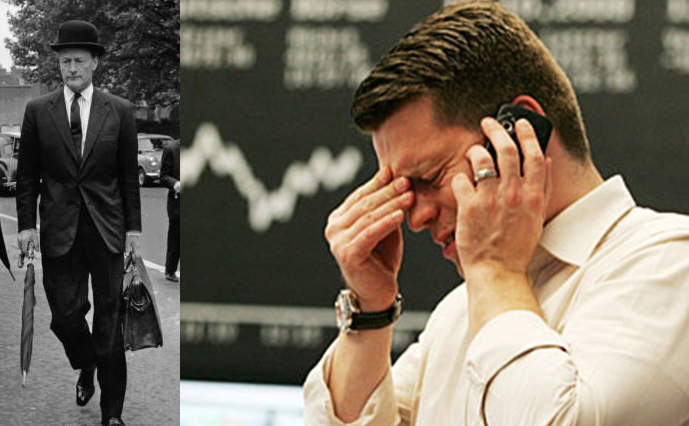With news of the cancellation, only 6 weeks after the election, of major rail improvements to support the creation of a “Northern Powerhouse”, here’s a tale of when the last one was killed off by the first wave of free market fundamentalism.
In the summer of 1980, my boss thought it would be a good idea for me to attend the Oxford University Business Summer School. This was a course aimed at aspiring managers and was essentially the economics part of the first year PPE (politics, philosophy and economics) undergraduate course, crammed into three weeks of study. My fellow students came from medium to large employers across the country, in a variety of different sectors of the economy.
1980 saw the first of the home-grown and entirely unnecessary economic slumps, this one brought on by Thatcher’s great experiment called monetarism, at that time part of the new religion of Free Market Fundamentalism. (See my earlier post, Jam tomorrow on the M3, for more on my views of monetarism.) The recession was hitting manufacturing and the north of England particularly hard. Some of my co-learners worked in such industries.
We had many after-dinner speakers from the upper echelons of politics, academia, business and trade unions (yes, they were still listened to then). One speaker I particularly remember was one of the first of the new breed of City traders. His talk started by gently ridiculing the Old City Gentleman (seen on the left below), with his old-school tie code of ethics: “my word is my bond”, etc. He compared this unfavourably with the shiny, thrusting new City type (such as himself), who would sweep away the old ways. (The City “Big Bang” of deregulation was still a couple of years away.)
In the picture he painted, the new City was one enormous game of monopoly (playing with other people’s money), huge fun and with lots of money to be made. He all but invited his audience to abandon their own careers and follow the path he’d chosen.

During the question and answer session which followed, the discussion got quite heated. I distinctly remember two fellow students from northern industries: they were solid, respectable and, in all probability, “natural” Conservative voters. In the debate, they got very angry indeed, forcefully pointing out the enormous problems government policies were causing their industries, especially for exports.
There was absolutely no meeting of minds: they were living in different worlds.
I don’t know to this day whether my fellow students prospered or even if their companies survived. Nor, indeed, how many millions our city friend went on to make. But I did see at first hand the very personal pressures that were only just beginning as a result of the irresistible rise of the City and the destruction of our former northern industries.
Osborne was, until yesterday, speaking of a great revival of a northern powerhouse. It would have been a great deal simpler if his predecessors hadn’t destroyed the one we had in the first place.